afterLoad (456.48KB) (4.31ms)
afterInitialise (1.28MB) (15.07ms)
afterRoute (827.13KB) (4.12ms)
beforeRenderComponent com_content (35.1KB) (369μs)
Before Access::preloadComponents (all components) (67.27KB) (617μs)
After Access::preloadComponents (all components) (98.07KB) (645μs)
Before Access::preloadPermissions (com_content) (1.6KB) (13μs)
After Access::preloadPermissions (com_content) (3.29MB) (7.73ms)
Before Access::getAssetRules (id:62 name:com_content.category.20) (130.65KB) (98μs)
After Access::getAssetRules (id:62 name:com_content.category.20) (7.38KB) (61μs)
Before Access::getAssetRules (id:8 name:com_content) (51.77KB) (10.46ms)
After Access::getAssetRules (id:8 name:com_content) (6.17KB) (27μs)
afterRenderComponent com_content (1.5MB) (104ms)
afterDispatch (32.39KB) (7.12ms)
beforeRenderRawModule mod_articles_category (READ MORE...) (398.66KB) (11.97ms)
afterRenderRawModule mod_articles_category (READ MORE...) (69.25KB) (114ms)
beforeRenderRawModule mod_custom (BOOST YOUR IMMUNE DEFENSE) (6.45KB) (29μs)
afterRenderRawModule mod_custom (BOOST YOUR IMMUNE DEFENSE) (4.42KB) (211μs)
beforeRenderRawModule mod_articles_latest (Latest news) (976B) (13μs)
afterRenderRawModule mod_articles_latest (Latest news) (71.73KB) (72.33ms)
beforeRenderRawModule mod_tags_popular (Search) (2.09KB) (28μs)
afterRenderRawModule mod_tags_popular (Search) (27.95KB) (167ms)
beforeRenderRawModule mod_custom (the Vitamin and Mineral Guide) (960B) (28μs)
afterRenderRawModule mod_custom (the Vitamin and Mineral Guide) (1.02KB) (42μs)
beforeRenderRawModule mod_custom (Weight loss that works) (736B) (11μs)
afterRenderRawModule mod_custom (Weight loss that works) (928B) (22μs)
beforeRenderRawModule mod_custom (Get additionel and more detailed knowledge ) (752B) (10μs)
afterRenderRawModule mod_custom (Get additionel and more detailed knowledge ) (944B) (19μs)
beforeRenderRawModule mod_custom (Q10 goes by many names) (736B) (8μs)
afterRenderRawModule mod_custom (Q10 goes by many names) (928B) (19μs)
beforeRenderRawModule mod_custom (Check this before you buy a Q10 product) (752B) (8μs)
afterRenderRawModule mod_custom (Check this before you buy a Q10 product) (944B) (17μs)
beforeRenderRawModule mod_custom (Are you taking supplements) (736B) (9μs)
afterRenderRawModule mod_custom (Are you taking supplements) (2.28KB) (18μs)
beforeRenderRawModule mod_custom (Antiaging) (720B) (9μs)
afterRenderRawModule mod_custom (Antiaging) (912B) (17μs)
beforeRenderRawModule mod_custom (Exercise) (720B) (8μs)
afterRenderRawModule mod_custom (Exercise) (912B) (17μs)
beforeRenderRawModule mod_custom (Useful Links) (720B) (9μs)
afterRenderRawModule mod_custom (Useful Links) (1.02KB) (18μs)
beforeRenderModule mod_articles_category (READ MORE...) (268.2KB) (20.2ms)
afterRenderModule mod_articles_category (READ MORE...) (1.25KB) (4.09ms)
beforeRenderModule mod_custom (BOOST YOUR IMMUNE DEFENSE) (6.81KB) (30μs)
afterRenderModule mod_custom (BOOST YOUR IMMUNE DEFENSE) (1.28KB) (51μs)
beforeRenderModule mod_articles_latest (Latest news) (592B) (16μs)
afterRenderModule mod_articles_latest (Latest news) (1.27KB) (25μs)
beforeRenderModule mod_tags_popular (Search) (1.73KB) (13μs)
afterRenderModule mod_tags_popular (Search) (1.27KB) (21μs)
beforeRenderModule mod_custom (the Vitamin and Mineral Guide) (1.31KB) (10μs)
afterRenderModule mod_custom (the Vitamin and Mineral Guide) (1.28KB) (19μs)
beforeRenderModule mod_custom (Weight loss that works) (336B) (9μs)
afterRenderModule mod_custom (Weight loss that works) (1.27KB) (19μs)
beforeRenderModule mod_custom (Get additionel and more detailed knowledge ) (368B) (9μs)
afterRenderModule mod_custom (Get additionel and more detailed knowledge ) (1.3KB) (20μs)
beforeRenderModule mod_custom (Q10 goes by many names) (336B) (8μs)
afterRenderModule mod_custom (Q10 goes by many names) (1.27KB) (19μs)
beforeRenderModule mod_custom (Check this before you buy a Q10 product) (352B) (9μs)
afterRenderModule mod_custom (Check this before you buy a Q10 product) (1.28KB) (19μs)
beforeRenderModule mod_custom (Are you taking supplements) (352B) (8μs)
afterRenderModule mod_custom (Are you taking supplements) (1.28KB) (19μs)
beforeRenderModule mod_custom (Antiaging) (336B) (8μs)
afterRenderModule mod_custom (Antiaging) (1.27KB) (19μs)
beforeRenderModule mod_custom (Exercise) (336B) (8μs)
afterRenderModule mod_custom (Exercise) (1.25KB) (19μs)
beforeRenderModule mod_custom (Useful Links) (336B) (9μs)
afterRenderModule mod_custom (Useful Links) (3.77KB) (19μs)
beforeRenderRawModule mod_menu (Main Menu - English) (37.51KB) (4.65ms)
afterRenderRawModule mod_menu (Main Menu - English) (190.16KB) (11.23ms)
beforeRenderModule mod_menu (Main Menu - English) (720B) (5μs)
afterRenderModule mod_menu (Main Menu - English) (4.86KB) (62μs)
beforeRenderRawModule mod_languages (Sprogskift) (3.94KB) (20μs)
afterRenderRawModule mod_languages (Sprogskift) (21.83KB) (10.11ms)
beforeRenderModule mod_languages (Sprogskift) (720B) (5μs)
afterRenderModule mod_languages (Sprogskift) (5.31KB) (22μs)
beforeRenderRawModule mod_finder () (6.34KB) (12μs)
afterRenderRawModule mod_finder () (132.96KB) (10.87ms)
beforeRenderModule mod_finder () (704B) (5μs)
afterRenderModule mod_finder () (3.29KB) (38μs)
beforeRenderRawModule mod_custom () (6.62KB) (167μs)
afterRenderRawModule mod_custom () (26.52KB) (4.99ms)
beforeRenderModule mod_custom () (704B) (6μs)
afterRenderModule mod_custom () (1.23KB) (49μs)
beforeRenderRawModule mod_menu (Main Menu - English) (5.07KB) (112μs)
afterRenderRawModule mod_menu (Main Menu - English) (6.3KB) (4.06ms)
beforeRenderModule mod_menu (Main Menu - English) (720B) (5μs)
afterRenderModule mod_menu (Main Menu - English) (1.25KB) (48μs)
beforeRenderRawModule mod_languages (Sprogskift Mobil) (912B) (19μs)
afterRenderRawModule mod_languages (Sprogskift Mobil) (3.89KB) (2.83ms)
beforeRenderModule mod_languages (Sprogskift Mobil) (720B) (6μs)
afterRenderModule mod_languages (Sprogskift Mobil) (1.27KB) (33μs)
beforeRenderRawModule mod_finder () (2.3KB) (12μs)
afterRenderRawModule mod_finder () (6.29KB) (2.06ms)
beforeRenderModule mod_finder () (704B) (5μs)
afterRenderModule mod_finder () (1.23KB) (47μs)
beforeRenderRawModule mod_custom () (8.66KB) (202μs)
afterRenderRawModule mod_custom () (904B) (144μs)
beforeRenderModule mod_custom () (704B) (3μs)
afterRenderModule mod_custom () (2.43KB) (25μs)
beforeRenderRawModule mod_custom () (688B) (80μs)
afterRenderRawModule mod_custom () (896B) (97μs)
beforeRenderModule mod_custom () (704B) (3μs)
afterRenderModule mod_custom () (2.71KB) (22μs)
afterRender (276.11KB) (12.67ms)
| 1 x afterRenderRawModule mod_tags_popular (Search) (27.95KB) (27.3%) | 167.22ms |
| 1 x afterRenderRawModule mod_articles_category (READ MORE...) (69.25KB) (18.57%) | 113.75ms |
| 1 x afterRenderComponent com_content (1.5MB) (16.92%) | 103.67ms |
| 1 x afterRenderRawModule mod_articles_latest (Latest news) (71.73KB) (11.81%) | 72.33ms |
| 1 x beforeRenderModule mod_articles_category (READ MORE...) (268.2KB) (3.3%) | 20.20ms |
| 1 x afterInitialise (1.28MB) (2.46%) | 15.07ms |
| 1 x afterRender (276.11KB) (2.07%) | 12.67ms |
| 1 x beforeRenderRawModule mod_articles_category (READ MORE...) (398.66KB) (1.95%) | 11.97ms |
| 1 x afterRenderRawModule mod_menu (Main Menu - English) (190.16KB) (1.83%) | 11.23ms |
| 1 x afterRenderRawModule mod_finder () (132.96KB) (1.77%) | 10.87ms |
| 1 x Before Access::getAssetRules (id:8 name:com_content) (51.77KB) (1.71%) | 10.46ms |
| 1 x afterRenderRawModule mod_languages (Sprogskift) (21.83KB) (1.65%) | 10.11ms |
| 1 x After Access::preloadPermissions (com_content) (3.29MB) (1.26%) | 7.73ms |
| 1 x afterDispatch (32.39KB) (1.16%) | 7.12ms |
| 1 x afterRenderRawModule mod_custom () (26.52KB) (0.82%) | 4.99ms |
| 1 x beforeRenderRawModule mod_menu (Main Menu - English) (37.51KB) (0.76%) | 4.65ms |
| 1 x afterLoad (456.48KB) (0.7%) | 4.31ms |
| 1 x afterRoute (827.13KB) (0.67%) | 4.12ms |
| 1 x afterRenderModule mod_articles_category (READ MORE...) (1.25KB) (0.67%) | 4.09ms |
| 1 x afterRenderRawModule mod_menu (Main Menu - English) (6.3KB) (0.66%) | 4.06ms |
| 1 x afterRenderRawModule mod_languages (Sprogskift Mobil) (3.89KB) (0.46%) | 2.83ms |
| 1 x afterRenderRawModule mod_finder () (6.29KB) (0.34%) | 2.06ms |
| 1 x After Access::preloadComponents (all components) (98.07KB) (0.11%) | 645μs |
| 1 x Before Access::preloadComponents (all components) (67.27KB) (0.1%) | 617μs |
| 1 x beforeRenderComponent com_content (35.1KB) (0.06%) | 369μs |
| 1 x afterRenderRawModule mod_custom (BOOST YOUR IMMUNE DEFENSE) (4.42KB) (0.03%) | 211μs |
| 1 x beforeRenderRawModule mod_custom () (8.66KB) (0.03%) | 202μs |
| 1 x beforeRenderRawModule mod_custom () (6.62KB) (0.03%) | 167μs |
| 1 x afterRenderRawModule mod_custom () (904B) (0.02%) | 144μs |
| 1 x beforeRenderRawModule mod_menu (Main Menu - English) (5.07KB) (0.02%) | 112μs |
| 1 x Before Access::getAssetRules (id:62 name:com_content.category.20) (130.65KB) (0.02%) | 98μs |
| 1 x afterRenderRawModule mod_custom () (896B) (0.02%) | 97μs |
| 1 x beforeRenderRawModule mod_custom () (688B) (0.01%) | 80μs |
| 1 x afterRenderModule mod_menu (Main Menu - English) (4.86KB) (0.01%) | 62μs |
| 1 x After Access::getAssetRules (id:62 name:com_content.category.20) (7.38KB) (0.01%) | 61μs |
| 1 x afterRenderModule mod_custom (BOOST YOUR IMMUNE DEFENSE) (1.28KB) (0.01%) | 51μs |
| 1 x afterRenderModule mod_custom () (1.23KB) (0.01%) | 49μs |
| 1 x afterRenderModule mod_menu (Main Menu - English) (1.25KB) (0.01%) | 48μs |
| 1 x afterRenderModule mod_finder () (1.23KB) (0.01%) | 47μs |
| 1 x afterRenderRawModule mod_custom (the Vitamin and Mineral Guide) (1.02KB) (0.01%) | 42μs |
| 1 x afterRenderModule mod_finder () (3.29KB) (0.01%) | 38μs |
| 1 x afterRenderModule mod_languages (Sprogskift Mobil) (1.27KB) (0.01%) | 33μs |
| 1 x beforeRenderModule mod_custom (BOOST YOUR IMMUNE DEFENSE) (6.81KB) (0%) | 30μs |
| 1 x beforeRenderRawModule mod_custom (BOOST YOUR IMMUNE DEFENSE) (6.45KB) (0%) | 29μs |
| 1 x beforeRenderRawModule mod_custom (the Vitamin and Mineral Guide) (960B) (0%) | 28μs |
| 1 x beforeRenderRawModule mod_tags_popular (Search) (2.09KB) (0%) | 28μs |
| 1 x After Access::getAssetRules (id:8 name:com_content) (6.17KB) (0%) | 27μs |
| 1 x afterRenderModule mod_custom () (2.43KB) (0%) | 25μs |
| 1 x afterRenderModule mod_articles_latest (Latest news) (1.27KB) (0%) | 25μs |
| 1 x afterRenderRawModule mod_custom (Weight loss that works) (928B) (0%) | 22μs |
| 1 x afterRenderModule mod_languages (Sprogskift) (5.31KB) (0%) | 22μs |
| 1 x afterRenderModule mod_custom () (2.71KB) (0%) | 22μs |
| 1 x afterRenderModule mod_tags_popular (Search) (1.27KB) (0%) | 21μs |
| 1 x afterRenderModule mod_custom (Get additionel and more detailed knowledge ) (1.3KB) (0%) | 20μs |
| 1 x beforeRenderRawModule mod_languages (Sprogskift) (3.94KB) (0%) | 20μs |
| 1 x afterRenderRawModule mod_custom (Get additionel and more detailed knowledge ) (944B) (0%) | 19μs |
| 1 x afterRenderRawModule mod_custom (Q10 goes by many names) (928B) (0%) | 19μs |
| 1 x afterRenderModule mod_custom (the Vitamin and Mineral Guide) (1.28KB) (0%) | 19μs |
| 1 x afterRenderModule mod_custom (Weight loss that works) (1.27KB) (0%) | 19μs |
| 1 x afterRenderModule mod_custom (Q10 goes by many names) (1.27KB) (0%) | 19μs |
| 1 x afterRenderModule mod_custom (Are you taking supplements) (1.28KB) (0%) | 19μs |
| 1 x afterRenderModule mod_custom (Antiaging) (1.27KB) (0%) | 19μs |
| 1 x afterRenderModule mod_custom (Exercise) (1.25KB) (0%) | 19μs |
| 1 x afterRenderModule mod_custom (Useful Links) (3.77KB) (0%) | 19μs |
| 1 x beforeRenderRawModule mod_languages (Sprogskift Mobil) (912B) (0%) | 19μs |
| 1 x afterRenderModule mod_custom (Check this before you buy a Q10 product) (1.28KB) (0%) | 19μs |
| 1 x afterRenderRawModule mod_custom (Are you taking supplements) (2.28KB) (0%) | 18μs |
| 1 x afterRenderRawModule mod_custom (Useful Links) (1.02KB) (0%) | 18μs |
| 1 x afterRenderRawModule mod_custom (Check this before you buy a Q10 product) (944B) (0%) | 17μs |
| 1 x afterRenderRawModule mod_custom (Antiaging) (912B) (0%) | 17μs |
| 1 x afterRenderRawModule mod_custom (Exercise) (912B) (0%) | 17μs |
| 1 x beforeRenderModule mod_articles_latest (Latest news) (592B) (0%) | 16μs |
| 1 x Before Access::preloadPermissions (com_content) (1.6KB) (0%) | 13μs |
| 1 x beforeRenderModule mod_tags_popular (Search) (1.73KB) (0%) | 13μs |
| 1 x beforeRenderRawModule mod_articles_latest (Latest news) (976B) (0%) | 13μs |
| 1 x beforeRenderRawModule mod_finder () (6.34KB) (0%) | 12μs |
| 3 x beforeRenderModule mod_custom () (704B) (0%) | 12μs |
| 1 x beforeRenderRawModule mod_finder () (2.3KB) (0%) | 12μs |
| 1 x beforeRenderRawModule mod_custom (Weight loss that works) (736B) (0%) | 11μs |
| 1 x beforeRenderRawModule mod_custom (Get additionel and more detailed knowledge ) (752B) (0%) | 10μs |
| 1 x beforeRenderModule mod_custom (the Vitamin and Mineral Guide) (1.31KB) (0%) | 10μs |
| 2 x beforeRenderModule mod_menu (Main Menu - English) (720B) (0%) | 10μs |
| 2 x beforeRenderModule mod_finder () (704B) (0%) | 10μs |
| 1 x beforeRenderRawModule mod_custom (Are you taking supplements) (736B) (0%) | 9μs |
| 1 x beforeRenderRawModule mod_custom (Antiaging) (720B) (0%) | 9μs |
| 1 x beforeRenderRawModule mod_custom (Useful Links) (720B) (0%) | 9μs |
| 1 x beforeRenderModule mod_custom (Get additionel and more detailed knowledge ) (368B) (0%) | 9μs |
| 1 x beforeRenderModule mod_custom (Check this before you buy a Q10 product) (352B) (0%) | 9μs |
| 1 x beforeRenderModule mod_custom (Useful Links) (336B) (0%) | 9μs |
| 1 x beforeRenderModule mod_custom (Weight loss that works) (336B) (0%) | 9μs |
| 1 x beforeRenderRawModule mod_custom (Check this before you buy a Q10 product) (752B) (0%) | 8μs |
| 1 x beforeRenderRawModule mod_custom (Exercise) (720B) (0%) | 8μs |
| 1 x beforeRenderModule mod_custom (Are you taking supplements) (352B) (0%) | 8μs |
| 1 x beforeRenderRawModule mod_custom (Q10 goes by many names) (736B) (0%) | 8μs |
| 1 x beforeRenderModule mod_custom (Q10 goes by many names) (336B) (0%) | 8μs |
| 1 x beforeRenderModule mod_custom (Antiaging) (336B) (0%) | 8μs |
| 1 x beforeRenderModule mod_custom (Exercise) (336B) (0%) | 8μs |
| 1 x beforeRenderModule mod_languages (Sprogskift Mobil) (720B) (0%) | 6μs |
| 1 x beforeRenderModule mod_languages (Sprogskift) (720B) (0%) | 5μs |
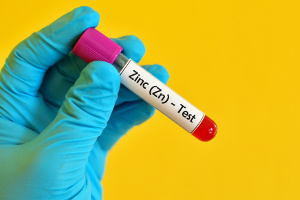 Zinc supplements have been given to patients with acne for years because of the anti-inflammatory properties of the nutrient. Still, it remains unclear whether zinc also helps treat other inflammatory skin diseases. Therefore, a group of scientists wanted to look closer at this and they discovered that zinc supplementation may be useful in the treatment of atopic dermatitis and diaper rash. Local treatment with zinc salve may also help.
Zinc supplements have been given to patients with acne for years because of the anti-inflammatory properties of the nutrient. Still, it remains unclear whether zinc also helps treat other inflammatory skin diseases. Therefore, a group of scientists wanted to look closer at this and they discovered that zinc supplementation may be useful in the treatment of atopic dermatitis and diaper rash. Local treatment with zinc salve may also help.







 Although the course of disease for most people with COVID-19 is rather mild, the greatest concern is the life-threatening complications in the respiratory tract caused by oxidative stress and cytokine storm where the immune system attacks healthy tissue. Scientists are busy looking for new therapies such as intravenous
Although the course of disease for most people with COVID-19 is rather mild, the greatest concern is the life-threatening complications in the respiratory tract caused by oxidative stress and cytokine storm where the immune system attacks healthy tissue. Scientists are busy looking for new therapies such as intravenous 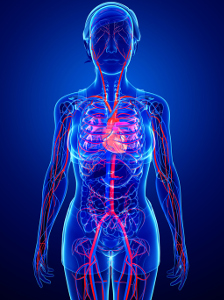 Fish oil contains the long-chained
Fish oil contains the long-chained 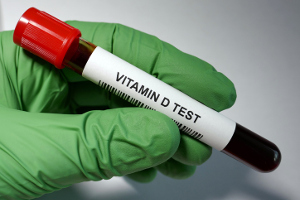 The interplay between
The interplay between  Fish is good source of
Fish is good source of 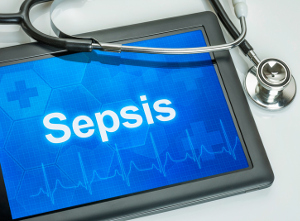
 Neurological diseases are on the rise and Alzheimer’s disease is one of the leading causes of dementia. Now, scientists from Boston University have discovered that slow-moving brain waves during our sleep initiate a cleansing process in the brain that protects against Alzheimer’s disease, dementia, and other neurological disorders. Also, a study of men conducted by scientists from Uppsala University in Sweden demonstrated that as little as a single night without sleep increases levels of proteins that serve as biomarkers of Alzheimer’s disease. It is therefore essential to sleep properly every single night so that we can remain mentally alert and vital. In cases where the normal guidelines for healthy sleep prove to be of little use, supplementing with the “sleep hormone” melatonin may turn out to offer relief.
Neurological diseases are on the rise and Alzheimer’s disease is one of the leading causes of dementia. Now, scientists from Boston University have discovered that slow-moving brain waves during our sleep initiate a cleansing process in the brain that protects against Alzheimer’s disease, dementia, and other neurological disorders. Also, a study of men conducted by scientists from Uppsala University in Sweden demonstrated that as little as a single night without sleep increases levels of proteins that serve as biomarkers of Alzheimer’s disease. It is therefore essential to sleep properly every single night so that we can remain mentally alert and vital. In cases where the normal guidelines for healthy sleep prove to be of little use, supplementing with the “sleep hormone” melatonin may turn out to offer relief.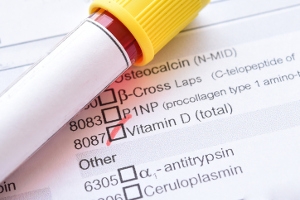 Coronary occlusion is the leading cause of death worldwide. Type 2 diabetes is spreading like a bushfire and this disease is characterized by atherosclerosis and early death. Diet and lifestyle are of vital importance and the same goes for
Coronary occlusion is the leading cause of death worldwide. Type 2 diabetes is spreading like a bushfire and this disease is characterized by atherosclerosis and early death. Diet and lifestyle are of vital importance and the same goes for  A lot of sports and fitness disciplines are indoor activities. According to a new American study, this increases the risk of becoming vitamin D-deficient. Not only can a
A lot of sports and fitness disciplines are indoor activities. According to a new American study, this increases the risk of becoming vitamin D-deficient. Not only can a  The blood supply to the retina of the eye is crucial for good vision. For that reason, experts recommend taking antioxidant supplements against eye diseases caused by an impaired blood supply to the retina. Although there is lacking evidence for the effectiveness of such supplements it appears now that Q10 and other antioxidants may improve vision when used in combination with conventional therapies, according to a Spanish study that is published in Nutrients. Because the body has difficulty with absorbing Q10 from supplements it is important to choose a supplement that has good bioavailability.
The blood supply to the retina of the eye is crucial for good vision. For that reason, experts recommend taking antioxidant supplements against eye diseases caused by an impaired blood supply to the retina. Although there is lacking evidence for the effectiveness of such supplements it appears now that Q10 and other antioxidants may improve vision when used in combination with conventional therapies, according to a Spanish study that is published in Nutrients. Because the body has difficulty with absorbing Q10 from supplements it is important to choose a supplement that has good bioavailability. As you grow older your skeletal muscle slowly dwindles, you lose muscle strength, and your figure changes. This phenomenon is known as sarcopenia and is one of the main reasons why older people gradually become frail and perhaps even invalid. Both diet and exercise play an important role and according to a new study from Trinity College Dublin, lack of
As you grow older your skeletal muscle slowly dwindles, you lose muscle strength, and your figure changes. This phenomenon is known as sarcopenia and is one of the main reasons why older people gradually become frail and perhaps even invalid. Both diet and exercise play an important role and according to a new study from Trinity College Dublin, lack of 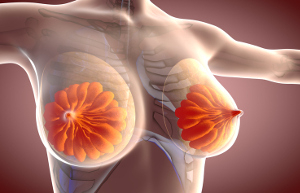 Breast cancer is the number one cause of cancer-related deaths among women worldwide. The diet has huge importance and according to a new Polish study, eating more fish with
Breast cancer is the number one cause of cancer-related deaths among women worldwide. The diet has huge importance and according to a new Polish study, eating more fish with  The number of children and adolescents with ADHD has skyrocketed in the past decade, and the human and socioeconomic costs are enormous. A major cause may be the widespread problems with vitamin D deficiency, according to a study from Turku University in Finland. It does not make things any easier that sun awareness campaigns fail to give people an alternative way of getting enough
The number of children and adolescents with ADHD has skyrocketed in the past decade, and the human and socioeconomic costs are enormous. A major cause may be the widespread problems with vitamin D deficiency, according to a study from Turku University in Finland. It does not make things any easier that sun awareness campaigns fail to give people an alternative way of getting enough